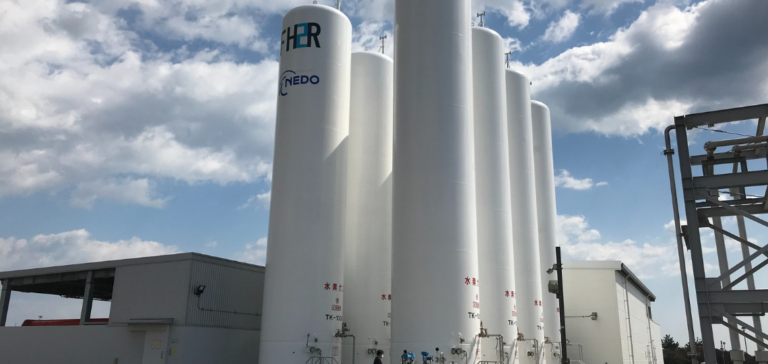The global energy industry is on the cusp of a green revolution, with a recent announcement that testifies to the growing commitment to green energy. green hydrogen. Three energy and technology companies – Asahi Kasei, Gentari Hydrogen Sdn Bhd, a subsidiary of Gentari Sdn Bhd, and JGC Holdings Corporation – have recently completed a detailed feasibility study. The study aims to produce up to 8,000 tonnes of green hydrogen a year, using a 60-megawatt (MW) alkaline electrolyser system.
Collaboration between Asahi Kasei, Gentari and JGC
This initiative is part of the Green Innovation Fund for the Development of the Large-Scale Alkaline Water Electrolysis System and the Green Chemical Plant Project, supported by Japan’s New Energy and Industrial Technology Development Organization (NEDO).
Involvement of the Project in the Energy Transition
According to the signed MOU, the parties are preparing a Front End Engineering Design (FEED) study due to start in January 2024. Commissioning is scheduled for 2027. Indeed, this collaboration demonstrates the companies’ commitment to promoting green hydrogen markets and establishing a base for regional green hydrogen production, aligning with the broader mission of decarbonization in Japan, Malaysia and across Southeast Asia.
Strategic Impact on Malaysia’s Hydrogen Economy
Nobuko Uetake, Executive Manager of Asahi Kasei and General Manager of its Green Solution Project, stressed the importance of this collaboration:
“We are delighted to be collaborating with these two companies on a project that will demonstrate to the world the practical application of green hydrogen. Asahi Kasei’s experience in experiments in Germany and managing a 10MW electrolyzer in Japan for over three years will play a crucial role in the success of this project.”
Michèle Azalbert, Director of Hydrogen at Gentari, highlighted the strategic impact of this collaboration:
“This project acts as a catalyst to advance Malaysia’s hydrogen economy towards achieving its green hydrogen target of 200,000 tonnes per year by 2030, aligning with the National Energy Transition Roadmap and the Hydrogen Economy and Technology Roadmap. Beyond that, Gentari is developing hydrogen projects with national and state entities to position Malaysia as the region’s leading hydrogen hub, leveraging PETRONAS’ assets and the country’s strategic advantages.”
Masahiro Aika, Executive Director of JGC, expressed his gratitude for the efforts made to conclude this MOU:
“JGC Group is currently building a clean ammonia production demonstration plant adjacent to Asahi Kasei’s electrolyzer in Namie-machi, Fukushima Prefecture, Japan, with an integrated control system. We look forward to applying the lessons learned from the demonstration and using its technical results for the realization of this project in Malaysia.”
This collaboration marks a significant turning point in the production of green energy in Asia. The commitment of these companies to developing green hydrogen illustrates not only a technological advance, but also a crucial step towards decarbonization and a sustainable economy. The project is tangible proof of the feasibility of green hydrogen as a viable, eco-responsible energy resource.






















